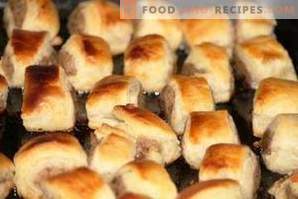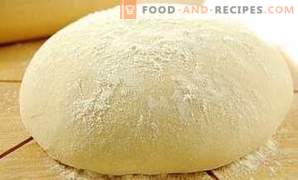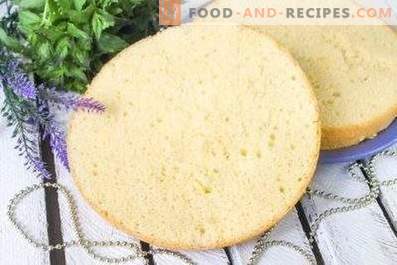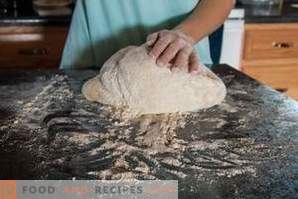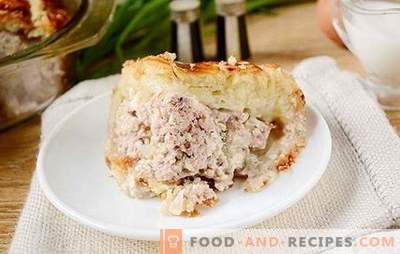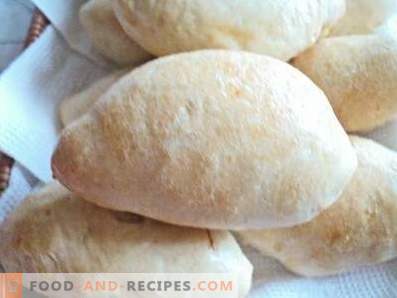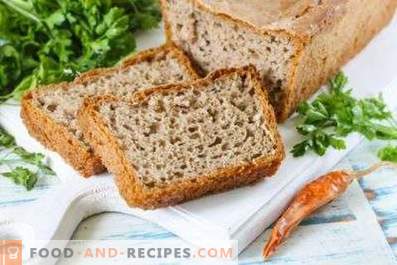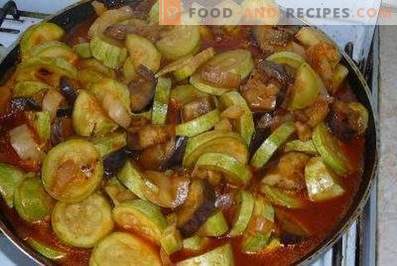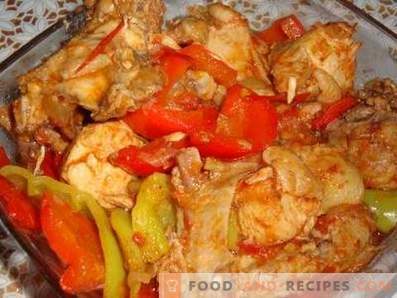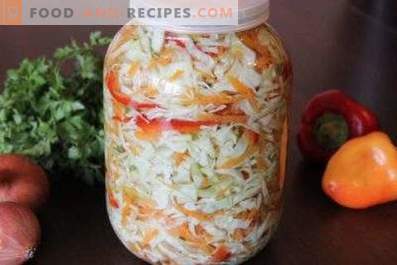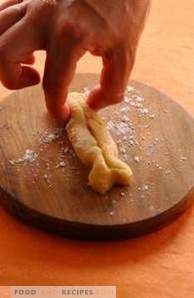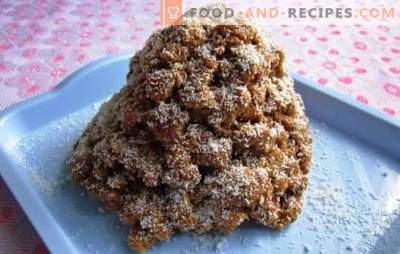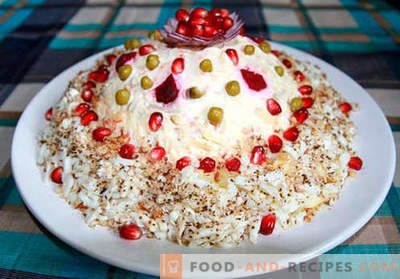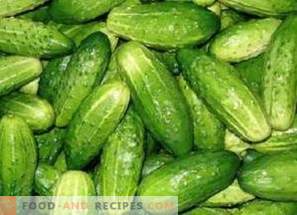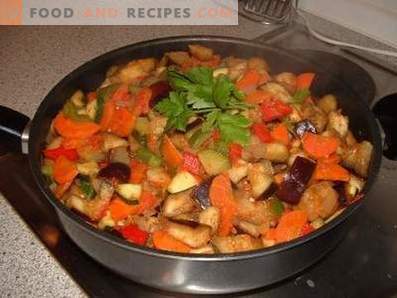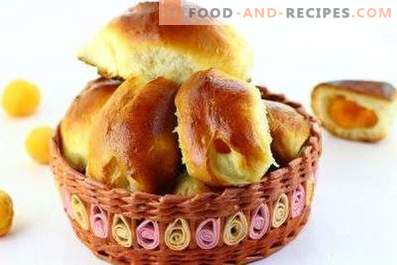
The dream of any chef who bakes pies is that they are always baked evenly, not burnt and not overdried. It so happens that even with all the technologies for preparing the dough and observing the recipe, the cakes are unsuccessful. Perhaps you do not always bake pies at the required temperature and not enough, or, conversely, soak them in the oven for too long? This nuance is very important, because the time and temperature of baking depends on the type of dough and the size of the baked product.
Time and temperature of baking pies from different types of dough
Yeast sponge and straight dough
- Butter yeast sponge dough is usually baked at this temperature: 220-240 degrees. 10-12 minutes of baking is enough for small pies for absolute readiness. Note: the smaller the muffin, the faster the pasty is baked.
- Patties from yeast straight dough are prepared at a temperature of 240-260 degrees. This will take from 8 to 15 minutes.
Puff yeast, yeast-free and early ripening dough
- When used for puff pastry yeast dough, the oven is heated to a temperature of 240-260 degrees. With such a temperature regime, the baking time of the patties ranges from 10 to 20 minutes.
- For baking puff pastry-free dough of small products, including pies, the oven is heated to 210-250 degrees. They are completely baked and reach absolute readiness in about 20-30 minutes.
- Delicious pastries are made from puff pastry if baked at 200-240 degrees for 25-30 minutes.
Sand dough
- Shortcake pasty cakes are appetizing and crumbly, provided that they are sent to be baked in an oven preheated to 230-250 degrees for 15-20 minutes.
Unsweetened patty dough on soda
- Pies from this easy-to-prepare, tender and fluffy dough are baked in the oven, pre-heating it to a temperature of 220-240 degrees. After 15-20 minutes baking will be ready.
Curd Dough
- Patties made from cottage cheese dough are prepared in this way: they are baked at a temperature of 190 degrees for about 20-25 minutes.
Cooking Tips for Delicious Pies
- Never neglect the 15-20 minute proofing test. Proving is a process in which fermentation takes place in already formed dough pieces, accompanied by the formation of carbon monoxide, which is necessary to create the porosity of the dough.
- To make the cakes ruddy, they need to be smeared with whipped egg yolk before going to the oven.
- During the baking of dough products, including pies, the oven cannot be opened until it is grabbed by a crust. Otherwise, the dough will settle and lose its fluffiness.
- In order to avoid baking in the oven, a dish with salt or water should be put under the form or a baking sheet with dough pieces.
- When baking, it is not recommended to “disturb” a pan of pies - do not shake it or move it.
- Small dough products tolerate high temperatures well, and therefore prepare much faster than large ones. Thus, they need to be closely monitored so as not to spoil.
- If you are making puff pastry pies, be sure to put them in the fridge before going to the oven. Then put the dough pieces on a baking sheet, pre-moistened with cold water, and send to the preheated oven chilled.
- It is very easy to make a baked dough ready. To do this, you can use a toothpick. Just pierce her pie, and then see if there is any dough left on the toothpick. If yes, the product is not ready, and if the toothpick is dry, you can remove the pastries from the oven.
- Pies made from cottage cheese dough will quickly settle, if, after being removed from the oven, they fall into a draft.
- Do not rush to get baked pies out of the oven. They will be softer if allowed to cool in the oven.
These simple nuances, if not neglected, will help you bake delicious, fluffy, ruddy cakes, from which it will be impossible to break away.
